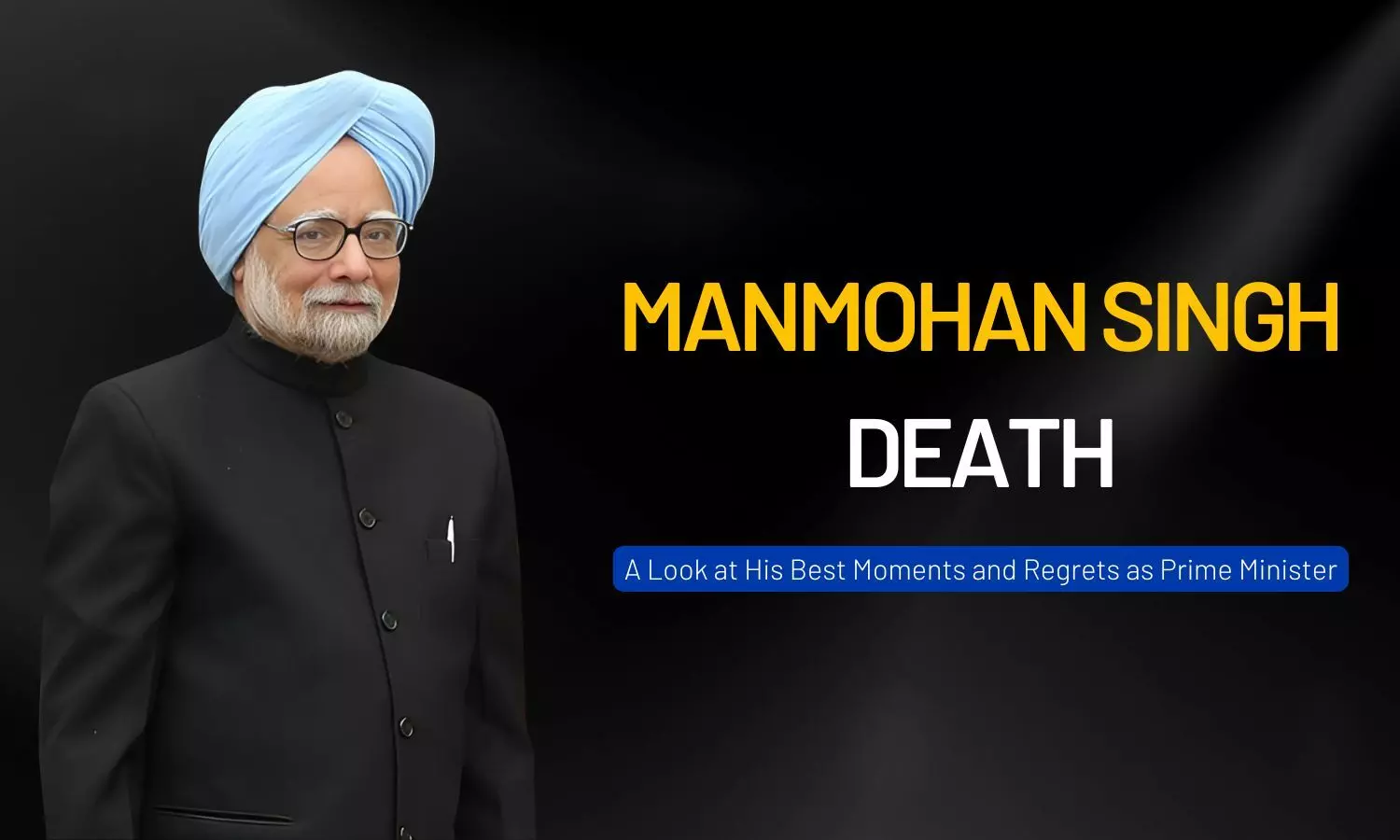Manmohan Singh Death: A Look at His Best Moments and Regrets as Prime Minister
Manmohan Singh dies at 92. Remember his role in shaping India’s economic reforms and his leadership from 2004 to 2014.
Manmohan Singh Death: A Look at His Best Moments and Regrets as Prime Minister

Manmohan Singh, who passed away on Thursday, at the age of 92, served as the Prime Minister of India from 2004 to 2014. Known for his role in economic reforms that propelled India from the brink of bankruptcy in 1991, Singh’s tenure as Prime Minister remains a significant chapter in India’s modern political history.
During his last press conference as Prime Minister in January 2014, Singh reflected on his time in office. When asked about the defining moments of his tenure, Singh noted that the most significant achievement was the landmark civil nuclear deal with the United States.
He described it as a moment of pride, as it ended “nuclear apartheid,” a term that referred to the restrictions that hindered India’s access to nuclear technology and resources. This deal, reached under Singh’s leadership and with the backing of U.S. President George W. Bush, marked a shift in India’s global positioning.
The nuclear cooperation agreement, which was initially announced in 2005, involved complex negotiations and approvals. The International Atomic Energy Agency (IAEA) and the Nuclear Suppliers Group (NSG) were instrumental in allowing India access to civilian nuclear energy, significantly enhancing its energy capabilities.
Singh’s leadership in this area is considered one of his most prominent successes on the global stage.
However, Singh was candid about his regrets, particularly in the area of healthcare. He acknowledged that despite efforts like the National Rural Health Mission (NRHM), launched in 2005 to improve healthcare access in rural India, more could have been done, especially for women and children.
Singh expressed a desire to have achieved more in addressing the country’s healthcare challenges, despite the NRHM’s achievements in improving health services for marginalized populations.
In the same press conference, Singh responded to allegations of corruption during his government. The UPA-II government’s tenure had been marred by several high-profile corruption scandals, leading to significant criticism of Singh’s leadership. When asked about these accusations, Singh maintained that history would be kinder to him than his contemporaries and critics.
He highlighted the complexity of governing in a coalition politics environment and defended his actions during a period of significant political and economic challenges.
Singh also reflected on his unexpected rise to power. In 2004, after the Congress Party’s surprise electoral victory, Singh was chosen as Prime Minister, a role for which he was not initially positioned. He described this ascent to power as a “fortunate accident,” one that led to a decade of significant political and economic changes.
Throughout his tenure, Manmohan Singh was credited with stabilizing the Indian economy during challenging times and playing a key role in positioning India as a key player on the global stage.
However, his government faced both internal and external challenges, including corruption scandals and economic slowdowns. Despite these hurdles, Singh’s contributions to India’s economic reforms, nuclear diplomacy, and healthcare initiatives continue to define his legacy.
As India mourns the passing of its former Prime Minister, tributes have poured in from political leaders across the spectrum.

